Civil Ceremony Vs Symbolic Wedding In The Dolomites – How To Elope In Italy?
The choice between a civil ceremony and a symbolic wedding for your Dolomites elopement depends on your priorities, preferences, and the significance you attribute to the legal aspect of marriage. Both options offer their own advantages, allowing you to craft an elopement experience that resonates with your vision for this special day.
Civil Ceremony Pros & Cons Overview:
PROS
Experienced Officiants: Civil ceremonies are typically conducted by professional officiants who are experienced in conducting weddings. This ensures a polished and well-executed ceremony, contributing to a seamless overall experience.
Official Marriage Certificate: A civil ceremony results in the issuance of an official marriage certificate, which can be essential for various administrative purposes, such as name changes. Moreover, being able to proudly declare that you are legally married in the Dolomites adds an extra layer of distinction and pride to your elopement experience.
Structured Process: For couples who appreciate a structured and formal process, a civil ceremony provides a clear and organized framework for the exchange of vows and legalities. This can be both a pro or a con, depending on what you feel best with.
CONS
Structured Vows: Some couples don’t like the structure that a civil ceremony provides, including standardized vows and rituals. This can feel constrictive for those who prefer a personalized and easygoing approach to their wedding vows.
Location Restrictions: Civil ceremonies for a Dolomites wedding are often bound by specific locations designated by local authorities. This can limit your choice of unique or remote settings for the ceremony.
Formality: Civil ceremonies tend to have a formal structure, which might not appeal to couples seeking a more personalized, intimate or relaxed atmosphere for their Dolomites elopement. If you prefer a laid-back and casual experience, the formality of a civil ceremony might feel less fitting.
Symbolic Ceremony Pros & Cons Overview:
PROS
Location Flexibility: One of the significant advantages of a symbolic ceremony is the freedom to choose any location to elope in the Dolomites. This allows for a highly personalized and unique ceremony in a spot with sentimental value.
Personalization: Symbolic ceremonies offer a high degree of personalization. Couples can tailor the ceremony to reflect their unique interests, incorporating rituals, readings, and vows that are meaningful to them.
Cultural Integration: People can incorporate local customs, traditions, or cultural elements into the symbolic ceremony, adding a touch of regional authenticity to the celebration.
CONS
Lack of Legal Recognition: Perhaps the most significant drawback is that symbolic ceremonies do not have legal recognition.
Extra Steps for Legalities: Couples opting for a symbolic ceremony need to complete the legalities in their home country, which can potentially make feel the symbolic ceremony “less valid”
The Feeling of a “Less Valid” Ceremony: Some people might feel the symbolic ceremony is less worthy than a civil one, but this is highly personal. While others think that symbolic weddings are much more emotional and heartfelt.
Symbolic Elopement Ceremony, With Or Without Officiant?
In a symbolic elopement ceremony, people have the flexibility to choose whether to include an officiant or opt for a more intimate exchange of vows without one.
With an officiant, the ceremony can take on a structured and formal feel, providing a guide for the proceedings. This can be beneficial for couples who appreciate a traditional setup, or just want to be accompanied by someone during their ceremony. Including an officiant also opens the door to various rituals and symbolic acts, that need a third party involved, like the hand blessing or reading their stories, or a poem. The officiant at a symbolic ceremony can be someone special to the couple, such as a friend, family member, or even a hired professional who resonates with their values and style.
On the other hand, couples may choose to forgo an officiant when they elope in the Dolomites, for a more personal and spontaneous exchange of vows, allowing the ceremony to unfold naturally. Without an officiant, people have the freedom to create a ceremony that truly reflects them, incorporating rituals that hold personal significance.
The choice between having an officiant or not ultimately depends on the couple’s preferences and the atmosphere they wish to create for their symbolic ceremony in the Dolomites.
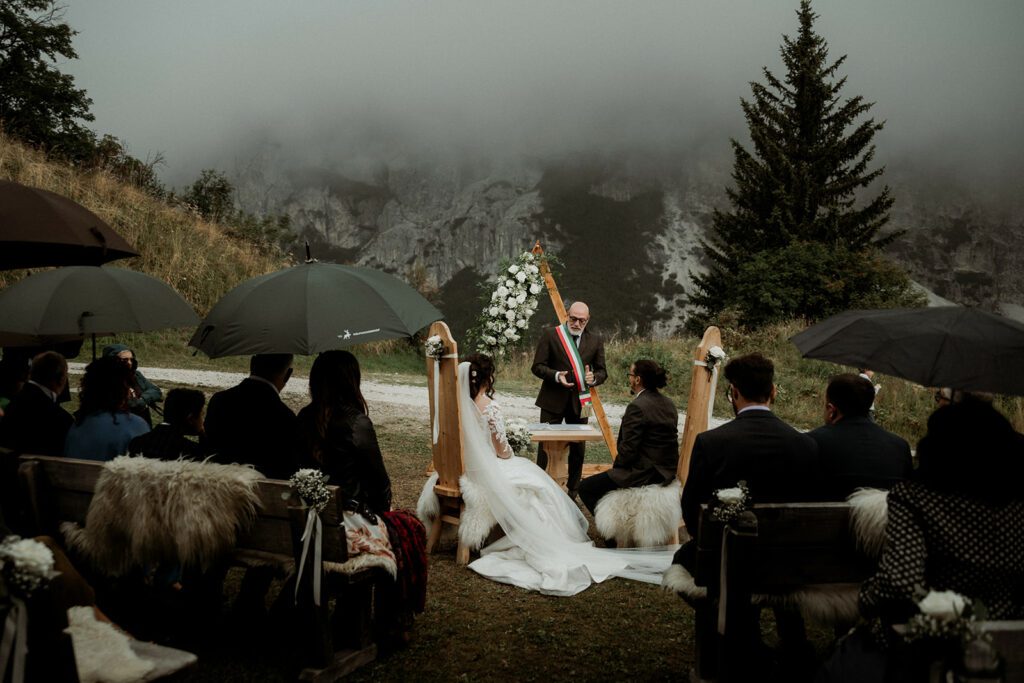
Symbolic Elopement Ceremony Rituals Ideas – Also For Non-Monogamous Ceremonies
Here is some inspiration for you on which rituals for a symbolic wedding ceremony exist and which ones could be a good fit for you! Whether for a romantic and intimate love escape or a wedding with some guests and/or celebrant!
Plant A Tree
The tree is the symbol of life in many cultures around the world.
During a wedding, planting a tree together means the birth and growth of a life together. The beauty of this ritual is that it is not of any culture or religion and therefore can be done at will, without cultural appropriation.
However, keep in mind that you cannot plant trees randomly and wherever you want. It is, therefore, necessary to organize a vase in which to plant it. Or in a modern way, plant a tree on the internet, giving yourself a paper certificate on your wedding day and doing good for the environment!
Rite Of Candles Or Rite Of Light
This rite is an ancient rite that seems to date back to paganism. The ritual of candles consists of lighting two candles (usually the long and thin ones) in the sign of one’s personality. Usually, parents turn them on, but you can also do it yourself.
After exchanging the rings, you can light the large candle with both of your candles, as a sign of the beginning of your new life together.
If your parents are not at your wedding, but you want to take them with you symbolically, you can also have candles light in your home and re-light them when you get married.
Wedding Cord, Also Known As “God’s Knot”
Taken from the bible – there are three cords: the one in the middle represents god, and the side ones the spouses. By intertwining them, the union is symbolically created and at the end, a knot is made. Also called God’s knot. That’s why tying the knot, means getting married.
However, I think we can interpret it in a non-religious way and give the strings 3 different meanings. For example, values such as trust, loyalty and respect.
Handfasting
Handfasting is a neo-pagan / Celtic wedding ritual, which is used very often in the United States, Great Britain and Ireland.
This rite does not have great rules, but it is highly symbolic and attached to nature. In fact, the 4 ribbons stand for the 4 elements: Water, Fire, Earth, and Air and the colours of the ribbons have their own symbolism.
- Red: passion
- Yellow: trust
- Green: prosperity
- Orange: abundance
- Blue: sincerity
- Black: success
- Purple: possession
- Gray: contentment
- White: peace and serenity
- Rosa: the truth
- Gold: wealth
- Brown: the house
- Silver: the values
It can be you or a celebrant who tie the ribbons.
After giving you the promises, you have to take off the ribbons without untying the knot. And keep the tapes as a reminder of each other’s vows.
Here is a typical text to be quoted during the ceremony:
“Ye are Blood of my Blood, and Bone of my Bone.
I give ye my Body, that we Two might be One.
I give ye my Spirit, ’til our Life shall be Done.You cannot possess me for I belong to myself
But while we both wish it, I give you that which is mine to give
You cannon command me, for I am a free person
But I shall serve you in those ways you require
and the honeycomb will taste sweeter coming from my hand.”
Wine Ceremony
The origins of this ritual are unknown. However, it can be given many meanings and made completely unique.
This ceremony consists of pouring two different bottles of wine together and creating your own wine – a symbol of a new life together. Usually white and red are used.
The created wine will be put aside in a box, with letters for each other and opened on the day of the first anniversary or on another important date for you. It is always a good idea to seek advice from a wine expert before making a bad mix.
Ritual Of The Sand
Much like the wine ceremony, it symbolizes a new life together.
Unlike the wine ceremony, the sand also symbolizes the individuality of people despite being linked. During this ritual, at least 3 glass containers are used. 2 have sand of different colours and in the third, the empty one, the sand is poured little by little.
Invitees can do this too – in this case, each colour stands for the wishes of the person pouring them out.
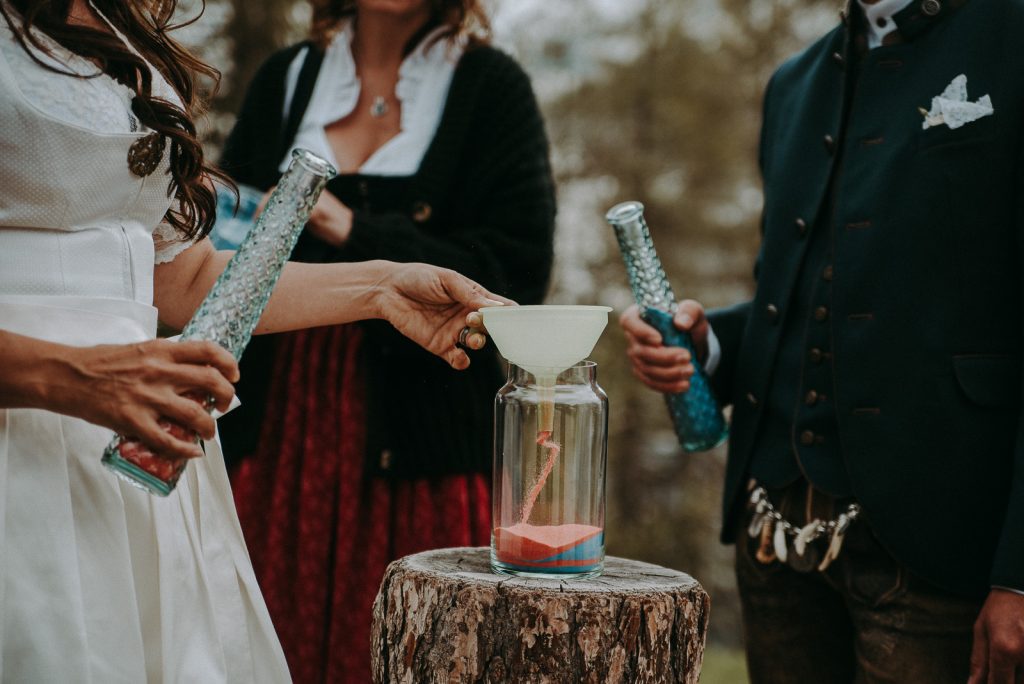
Ring Warming
The best of this ritual is that you can do it at home, and take all your loved ones with you in a symbolic way!
The ring warming, an Anglo-Saxon rite, involves passing the wedding rings through the hands of your loved ones, as a sign of their prayer, affection and protection.
The wedding rings can be loose or put in a small bag. The important thing is that they can warm up.
Oath Stone
Another very ancient Celtic ritual, linked to nature. Holding a stone in your hands during the wedding celebration means combining the energy of nature and those of the couple created at the time of the exchange of promises.
To make everything even more unique, you can engrave your initials on the stone. The stone must be held in the hand during the exchange of vows and kept as a sign of your connection.
Vows Or Letters
These rites are very classic and simple but at the same time perhaps the most intimate. Writing promises or letters to read to each other creates a very emotional moment. And if you get married alone, it will be a moment where you can tell each other whatever you want, without anyone listening.You can either read what your partner has written for you or read to your partner what you have written for him/her.
Toast
The toast is an ancient ritual, probably born spontaneously to thank the nature of good wine. The meanings are many, and they are different in many languages, so it is good to give your own meaning to the toast during your wedding.
Toast to your marriage, to new life or simply to your health!
💥Other Interesting Rituals: Read this article as well to discover some unique and fantasy-themed rituals.
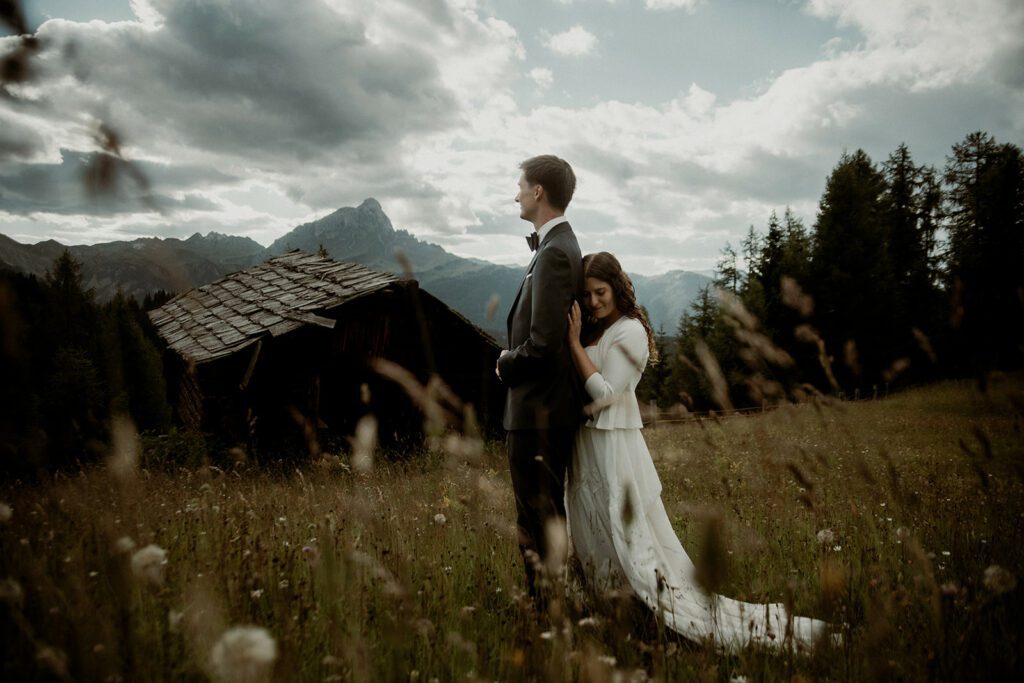
Some FAQs For A Symbolic & Legal Wedding In Italy
Gay wedding in Italy – can gay people get married in Italy?
Yes – gay weddings in Italy can be celebrated with a civil union (unione civile) since June 5th 2016.
Non-monogamous weddings in Italy – are polygamous weddings recognized in Italy?
No – non-monogamous weddings aren’t recognized in Italy. But you can decide to have a special and symbolic celebration for yourselves. Read my personal, alternative perspective on weddings here.
What are the documents and legal requirements for a legal wedding in Italy?
Depending on where you’re coming from, whether European Shengen countries or from the extra European countries like US, Canada, Australia or anywhere else, you will need more paperwork. But let’s see what you need to get married in the Dolomites to have an overview of the legal requirements to elope in Italy.
- Valid identity card / passport with which must be valid for at least 6 months.
- International birth certificate. You can get this at the registration office of your place of birth.
- International marriage certificate. You can get this at the registry office in your place of residence
- If widowed: the death certificate
- If divorced: a certificate of divorce
- Nulla Osta or Dichiarazione Giurata + Atto Notorio
Here are the Legal Requirements To Get Married From:
The USA
The Uk
Canada
Australia
Singapore
Do we need witnesses for our legal wedding in the Dolomites?
Yes, but.
Yes, you need witnesses for your marriage to be legally valid, but they don’t need to be your friends or family.
Where can we find the necessary witnesses for the ceremony?
The witnesses for your elopement in the Dolomites can be 2 of your guests – and if you don’t have any guests, you can ask 2 of your vendors to legally contribute to your elopement in the Dolomites (eg. me as your photographer + the wedding planner) or simply ask the registry office staff if they can be your witnesses.
How will the marriage be recognized in our country?
To get legally married in Italy from abroad, everything starts in your home country. In very simple words: your country assures you’re allowed to get married (through “Nulla Osta” or “Atto Notorio + Dichiarazione Giurata”). This will make the marriage certificate valid in your home country too.
Which registry office is suitable, or what options do we have to get married civilly in The Dolomites?
This is something we explore personally for each couple, depending on where your accommodation is (or will be) and your preferred location settings. Typically, every registry office allows foreigners to get married legally with all the legalities and valid documents. Other options that include outdoor civil ceremonies in the Dolomites are talked about below.
Is an interpreter mandatory, or are there also ceremonies in other languages?
An interpreter is mandatory for every language that isn’t officially spoken in the region of the Dolomites you’re legally getting married to. (More about languages below)
English is not an officially spoken language, so you need an interpreter. While for the German language, you don’t, if on South Tyrol’s territory.
Is it possible to celebrate an outdoor civil wedding ceremony, anywhere in italy?
⚠ A legally valid document can’t be signed outside the municipality structure, except for places selected by the municipality itself. ⚠ BUT!!
Luckily, there are celebrants authorized to officiate civil ceremonies across Italy, allowing you to exchange vows and sign the necessary documents right amid a mountain meadow! Here are two people who can help you with it.
ANGELA OF BESPOKE WEDDINGS | THE LEGAL WEDDING PLANNER
Is it possible to celebrate an outdoor symbolic wedding ceremony, anywhere in italy?
Yes, you can celebrate a symbolic wedding ceremony anywhere in Italy – unless the landscapes’ boundaries and private properties are respected. To get married symbolically in the Dolomites, you don’t need any legal permissions.
But again, it’s important to make sure you’re not on a private property organizing a massive ceremony with tons of decorations or also seating arrangements. You can either keep it simple and discrete, or contact the landowner and ask for a more elaborate arrangement. Collaborating with locals becomes paramount in navigating these considerations successfully.
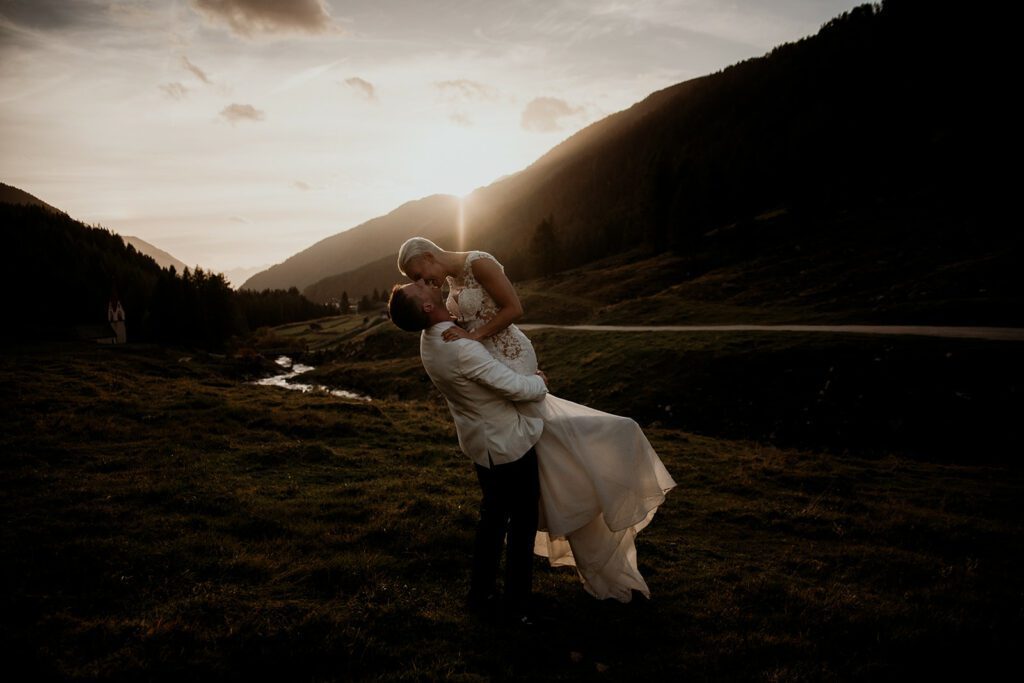
Guests & Decor For Your Elopement Ceremony In The Dolomites
Guest Handling For Ceremonies
Handling guests during an elopement requires some unique considerations, that might be slightly different from for traditional weddings my tips for you are:
Communication is Key: Clearly communicate your elopement plans with your guests well in advance. Provide details about the location, schedule, and any specific requirements. This helps manage expectations and ensures everyone is on the same page.
Keep it Intimate: Elopements are also chosen for their intimacy, so consider inviting only a small number of close friends or family members. I always suggest keeping it smaller than 7 guests. This creates a more personal and meaningful experience for everyone involved.
Choose Guest-Friendly Locations: If your guests are travelling to the elopement location, consider their comfort and accessibility, as mentioned above. Keep any disabilities or special needs in mind.
Informal Attire: Given the intimate nature of elopements, opt for informal or casual attire. This creates a relaxed and comfortable atmosphere for both you and your guests. Especially if you might be adventuring with your guests during your elopement, make sure they have hiking shoes.
For More Sustainability: Rent Your Decor For Your Elopement Ceremony
When planning your dream elopement in the Dolomites, choosing to rent decorations offers some perks. Opting for rentals is a budget-friendly and sustainable solution, and the decorations are effortlessly delivered by the decorator with all the setup, and taken down, eliminating any logistical hassles.
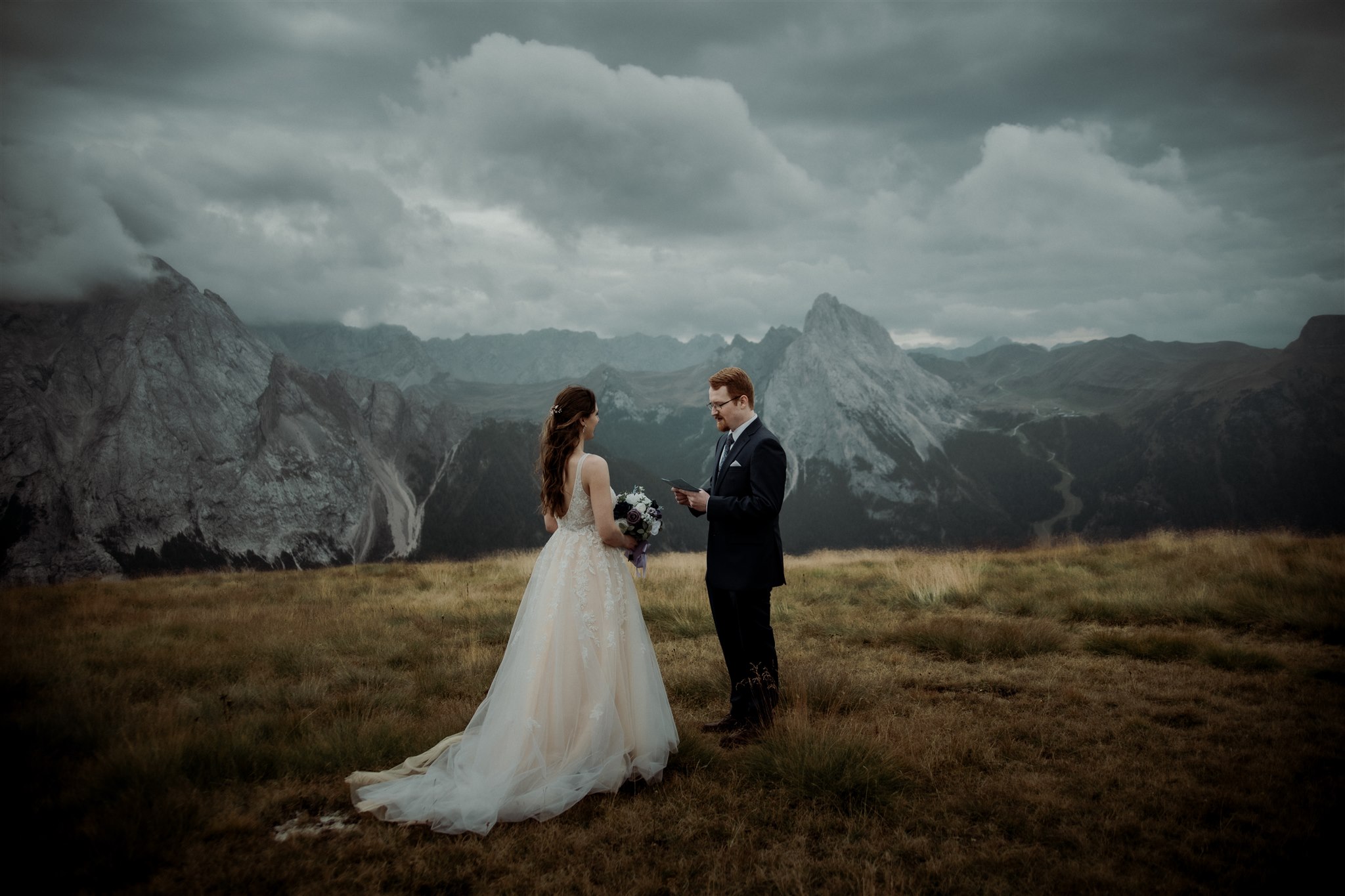
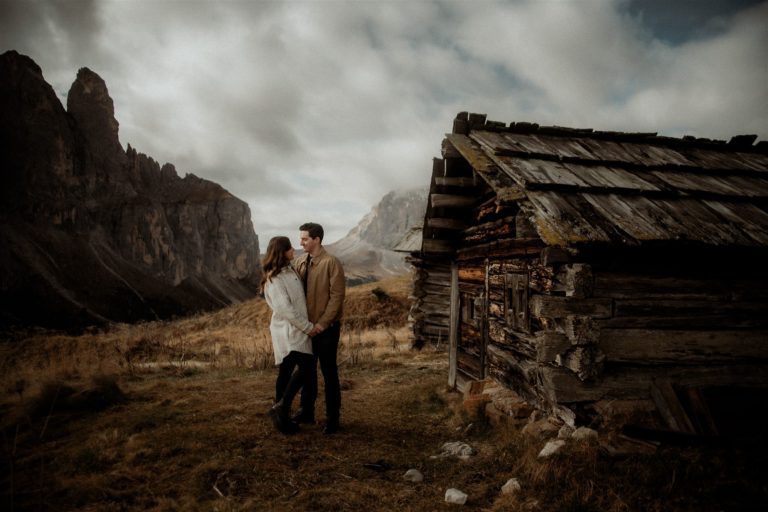

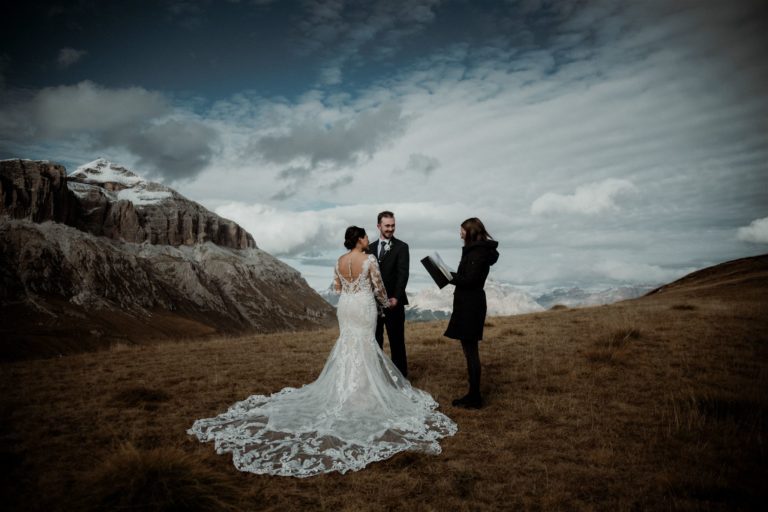

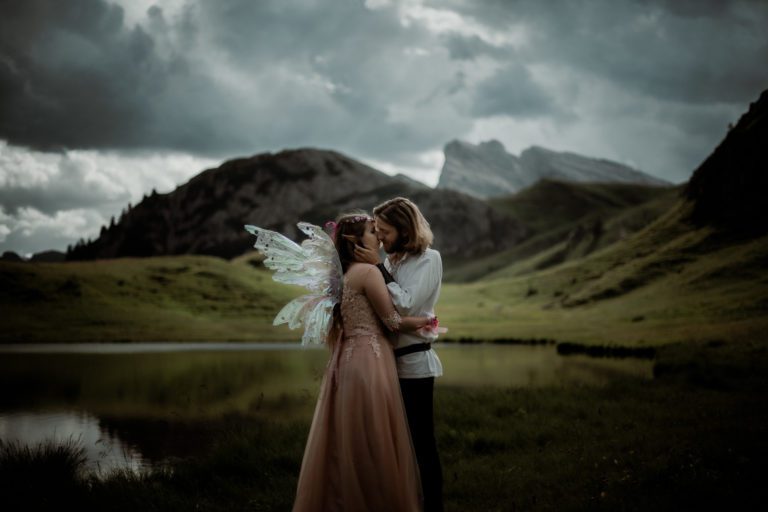
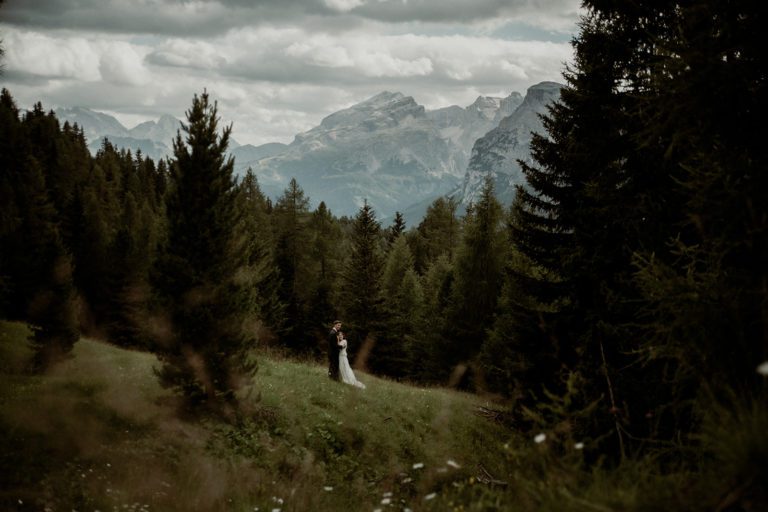
One Comment